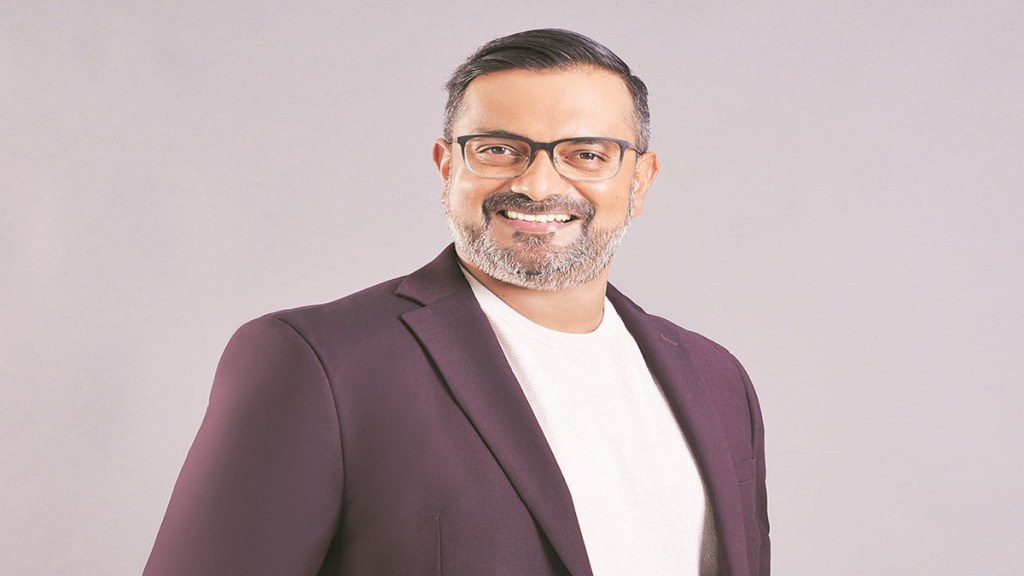As usage of digital services such as e-commerce, remote learning, online healthcare and entertainment along with social media increases exponentially, more data will need to be stored and processed. “We can expect a continued increase in average mobile data consumption per user,” says Santhosh Viswanathan, MD & VP, Sales, Marketing & Communications Group, Intel India. In a recent interview, he tells Sudhir Chowdhary that with India’s high volume of data generation, significant computing power will be needed in the form of additional data centres. Excerpts:
How is Intel leveraging emerging technologies to accelerate India’s digital transformation?
As India continues on its digital transformation journey, Intel is working with the government across different opportunities. Intel has been engaging with the vibrant technology ecosystem including industry, startups, academia, and government in the country. Today, through our collaborations with local entities, we are integrated with the ‘Make in India’ movement and are resolute in propelling our country’s digital transformation journey. Last year, we signed an MoU with VVDN to design and develop products for their customers under the government’s Production Linked Incentives (PLI) scheme.
We are also powering numerous sectors by leveraging advanced technologies. In the healthcare sector, Intel collaborated with Aster DM Healthcare and CARPL to build a state-of-the-art ‘Secure Federated Data Collaboration Platform’, to boost innovation in drug discovery, diagnosis, genomics, etc.
Intel is also committed to nurturing talent in India. We partnered with Atal Innovation Mission (AIM) at Niti Aayog and the CBSE under the ministry of education to integrate technologies like AI and IoT, as well as computational thinking, algorithmic thinking in the formal education curriculum.
Tell us about the latest Intel Xeon processors. What sets these apart from the competition?
The 4th Gen Intel Xeon Scalable processors are designed to accelerate performance across the fastest-growing workloads in artificial intelligence, analytics, networking, security, storage, and high-performance computing (HPC). These processors have the most built-in accelerators of any CPU on the market. Moreover, these are Intel’s most sustainable data centre processors ever, delivering a range of features for managing power and performance, making the best use of CPU resources to achieve key sustainability goals.
In fact, the 4th Gen Intel Xeon Scalable processors and the Intel Xeon CPU Max Series product family bring a scalable, balanced architecture that integrates CPU and GPU with oneAPI’s open software ecosystem for demanding computing workloads in HPC and AI, solving the world’s most challenging problems. We understand and solve customer problems by way of our hardware portfolio and software optimisations to unlock generational performance gains for key emerging and general-purpose workloads. Leading performance is about more than speeds and feeds — it’s also about security capabilities, product availability, features for managing power consumption, ecosystem support, software enablement, and a myriad of other offerings that make 4th Gen Intel Xeon processors the leading choice in data centre CPUs.
Our customers trust us because of our ability to deliver on quality, performance, and innovation, all while making it easy for customers to deploy Intel technologies through our broad ecosystem of partners.
What are your thoughts on the growing demands for data centres in India?
With over 600 million mobile users in India and mobile data pricing being one of the lowest in the world, we can expect a continued increase in average mobile data consumption per user. As per a recent Nokia report, the average mobile data consumption per user in India, which was 19.5 GB per user per month in India in 2022, is expected to more than double by 2024. What’s aiding this data consumption, not just on mobiles but across all connected devices, is the rise of digital services.
Also read: Oppo Find N2 Flip India price reveal on March 13; will it be cheaper than Samsung Galaxy Z Flip 4?
As more people continue using these services, more data will need to be stored and processed. Moreover, with companies moving to the cloud to store and access data and applications remotely, it will create a further demand for data centres to host these. With India’s high volume of data generation, significant computing power will be needed in the form of additional data centres in India. We see an enormous data centre opportunity in India.
With a rich history of collaboration with traditional data centre providers as well as cloud providers, Intel has the right server, memory, networking, and AI solutions that can help this new capacity of data centres to come online.








